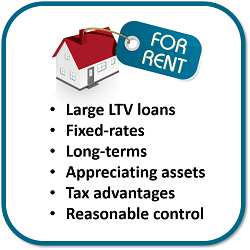When to Refinance
Regardless of the reason to refinance a home, the basic question to ask is: “Do you plan to live in the home long enough to recapture the cost of refinancing?” There are always expenses involved in refinancing which can be paid in cash or rolled into the new mortgage.
From a strictly financial standpoint, the break-even point is achieved when the cost of refinancing has been recaptured by the monthly savings. It would take approximately 23 months to recapture $4,000 of refinance costs with a lower payment of $175 a month.
1. Lower the rate
2. Shorten the term so that the loan will build equity faster and be paid off sooner.
3. Lower your payment to reduce your monthly cost of housing.
4. Convert an ARM to a FRM to stabilize your payment due to concern of rising interest rates.
5. Cash out equity to be able to use the money for another purpose.
6. Combine a first and second mortgage.
7. Consolidate personal debt so the interest is tax deductible.
8. Payoff higher cost debt such as credit cards, student debt, etc.
9. Remove a person from a loan as in the case of a divorce.
Points paid to purchase a principal residence are tax deductible completely in the year paid. However, the points must be spread over the life of the mortgage on a refinance. For that reason, consider getting a “par” value loan with no points. It may have a slightly higher rate but the interest will be fully deductible and it will lower the cost of refinancing.
Determine the break-even point on your situation by using the Refinance Analysis . Call us at 301-870-1717 for a recommendation of a trusted mortgage professional.






